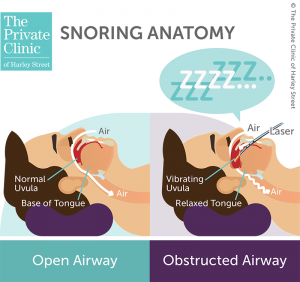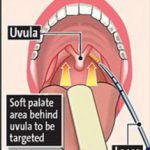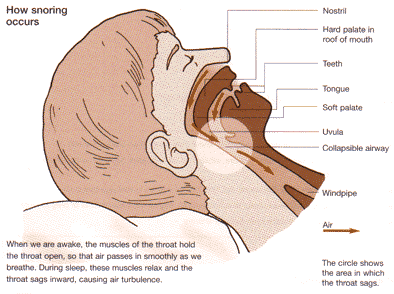7 ways to stop snoring
SNORING & BLOCKED NOSE
It is estimated that between 19% and 40% of adults snore when they sleep – whether they are aware of it or not.
Snoring can be disruptive for the sufferer often causing them disturbed sleep, tiredness during the day, headaches in the morning and sore throat upon awakening. It can also cause a strain on any relationships if the snoring disrupts your partners sleep too.

There are many tweaks and changes you can make to your lifestyle than can help to reduce snoring which includes:
Get a better sleep
If you are overtired, then you are more likely to breath harder which can cause your throat muscles to relax more. You are also more likely to sleep with your mouth open which will then eventually lead to snoring. We recommend taking a look at your sleep routine and your sleeping environment to ensure it is the best that it can be.
Reducing alcohol, smoking and caffeine consumption
Alcohol is a big cause of snoring as it relaxes the throat muscles which greatly increases your risk of snoring. Smoking and caffeine can also irritate and inflame your throat which can cause snoring, so we recommend avoiding these later in the day.
Be at a healthy weight
If you are overweight, then this is only going to put you at a higher risk of snoring. This is due to extra tissue being present in your throat that can contribute to snoring more so than someone who is not overweight. We recommend keeping at a healthy weight and in many cases, this may be all it takes to greatly reduce their snoring.
Avoid dairy before bed
A cup of tea before bed is often part of many people’s evening routines but just like caffeine, the dairy in milk can also irritate the throat lining so it may be worth swapping to an herbal tea alternative to see if there’s an improvement.
Sleep on your side
The majority of people that snore, sleep on their backs so we would encourage you to try sleeping on your side to see if this reduces your snoring. You can purchase special pillows and supports to help you feel more comfortable in this position.
Try mouth exercises
The National Sleep Foundation have recommended a series of mouth exercises that they have found, when practiced for 30 minutes a day can help to reduce the severity of sleep apnea, improve sleep, and ease snoring.
These exercises include:
- Pushing the tip of your tongue against the roof of your mouth and sliding the tongue backwards. Repeat this 20 times.
- Sucking your tongue upwards so that the entire tongue lies against the roof of your mouth. Repeat this 20 times.
- Forcing the back of your tongue downwards against the floor of your mouth while keeping the tip of your tongue in contact with your bottom front teeth.
To find out more visit The National Sleep Foundation’s website here
Get treatment
Lastly, if you are struggling with snoring and the side effects then it may be worth seeking professional advice. At The Private Clinic we have Consultant ENT Surgeon, Professor Yves Kamami who is the inventor of the LAUP (Laser Assisted Uvula Palatoplasty).

Laser Assisted Uvula Palatoplasty is a minimally invasive procedure that can be performed in our London Harley Street clinic. The treatment can take as little as 15 minutes and is performed under local anaesthetic. The treatment uses laser technology to reduce the size of the uvula and remove any excess tissue from the throat. Doing this increases the size of the airways which will help you to breathe more easily when you are sleeping.
The LAUP laser is very precise so there is minimal tissue damage making it a much safer and more comfortable alternative to uvulopalatoplasty (UPPP) surgery or snoring surgery.
To find out more about snoring treatment or to book a consultation please call, 0333 920 2471 or use our snoring online contact form.





